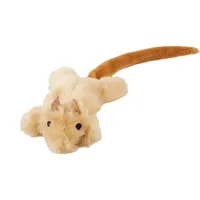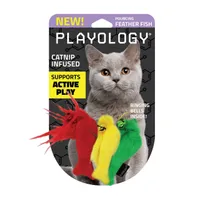Why do cats chase lasers? An expert reveals the reason
We answer, 'Why do cats chase lasers?', plus how to play with them safely.
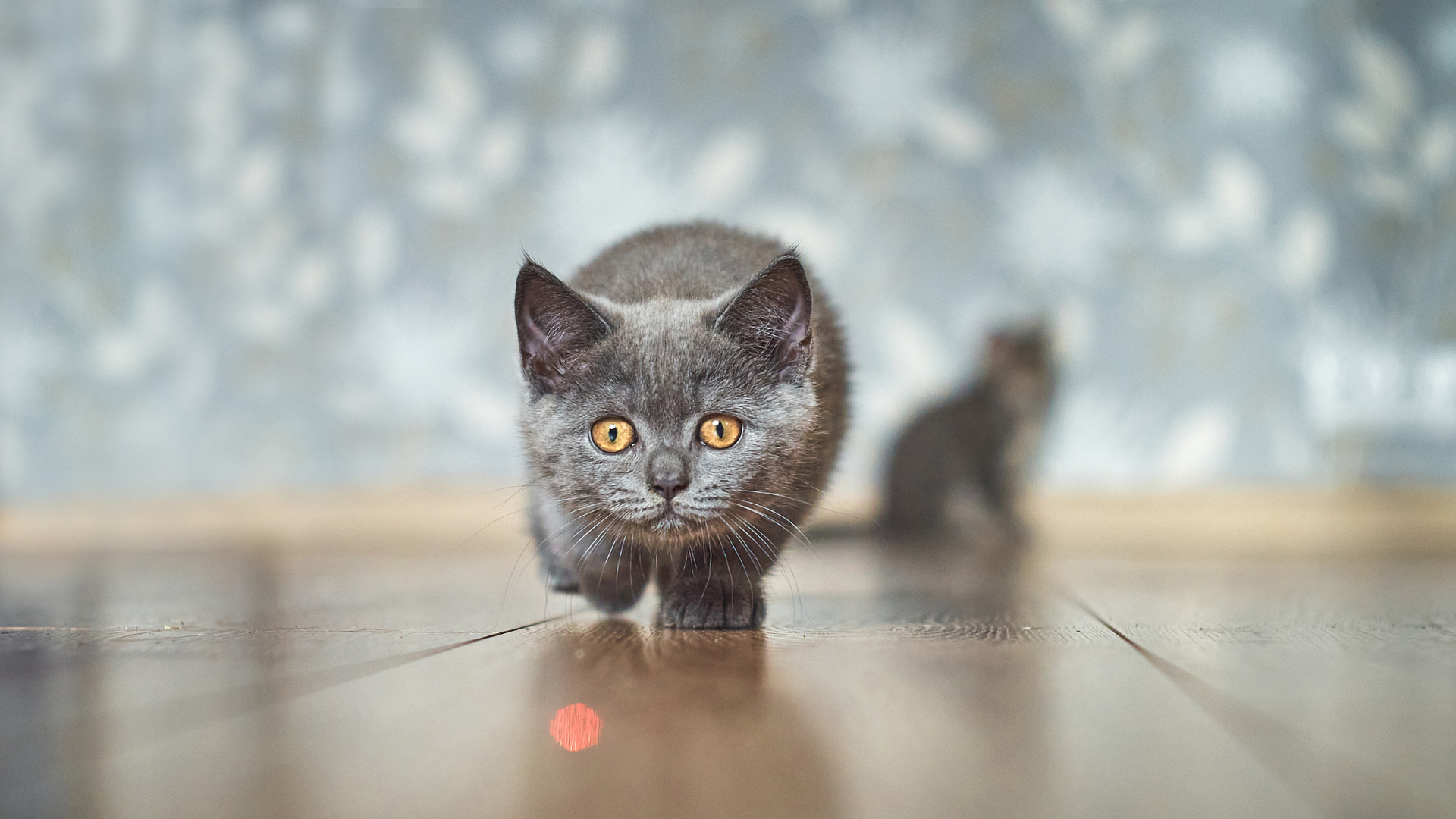
Why do cats chase lasers? Even though they're physically impossible to catch, our feline friends can't get enough and could spend all day pouncing after them.
There's a lot of debate over whether lasers are ethical for our cats to play with and if they pose any safety issues. Some experts warn that they can cause frustration and confusion, and recommend using the best cat toys instead which allow them to catch their 'prey'.
However, the best laser toys will provide your cat with lots of fun and can be safe if they're used appropriately.
To get to the bottom of why cats chase lasers, we called in expert vet Dr. Hannah Godfrey. Below, she explains why they find them so appealing and whether lasers cause anxiety in cats. We've also asked two behaviorists for their advice on how to play with lasers safely and whether cats think lasers are real.
Why do cats chase lasers?
Dr. Godfrey explains that similarly to prey, lasers move quickly with chaotic and unpredictable movements. As cats are natural hunters, this grabs their attention because it looks like an animal who is trying to get away.
She says: "Even cats who have come across laser pens lots of times will still react because they’re mentally and physically stimulating and it’s an opportunity to flex their muscles and practice their hunting skills."
Susan Nilson, cat and dog training and behavior expert, adds: "Hunting is an innate behavior for cats. If they don’t have an outlet to exercise their predatory instincts, they can become stressed and frustrated, potentially leading to behavioral issues."
Get the best advice, tips and top tech for your beloved Pets
If you have an indoor cat, you might find it tricky to find new ways to keep them active. As an alternative, you could try these seven great cat exercises or play with them using the best toys for indoor cats.

Do laser pointers give cats anxiety?
Whilst laser toys are great for preventing boredom and keeping your kitty active, they might cause them to feel frustrated if they're not used properly. However, Dr. Godfrey says it's unlikely to give your cat anxiety.
She says: "If they believe they haven’t caught it and are waiting for it to emerge from behind or under furniture, they might act a little stressed, but without any further stimulation they’ll soon give up and move on to something else."
To reduce their confusion, you could give your cat one of the best interactive cat toys once they've caught the laser to reward their efforts. If they're new to laser play, you should start small with short sessions and build up the time gradually.
Dr. Godfrey says: "The most important thing is to let your cat lead – if they seem to enjoy it then short bouts of laser pointer play can be a great way to prevent boredom and keep them active; however, if they seem too wound up or take a while to calm down afterward, it may be best to choose a different game."
If you want to learn more, this feature answers, 'Are laser pointers bad for cats?'
Frisco Skinny Mouse Plush Cat Toy with Catnip | Chewy
Once your cat has 'caught' the laser, reward them with this realistic mouse toy. It's filled with catnip inside, making it irresistible to bite, sniff and chase - activating all of their senses.
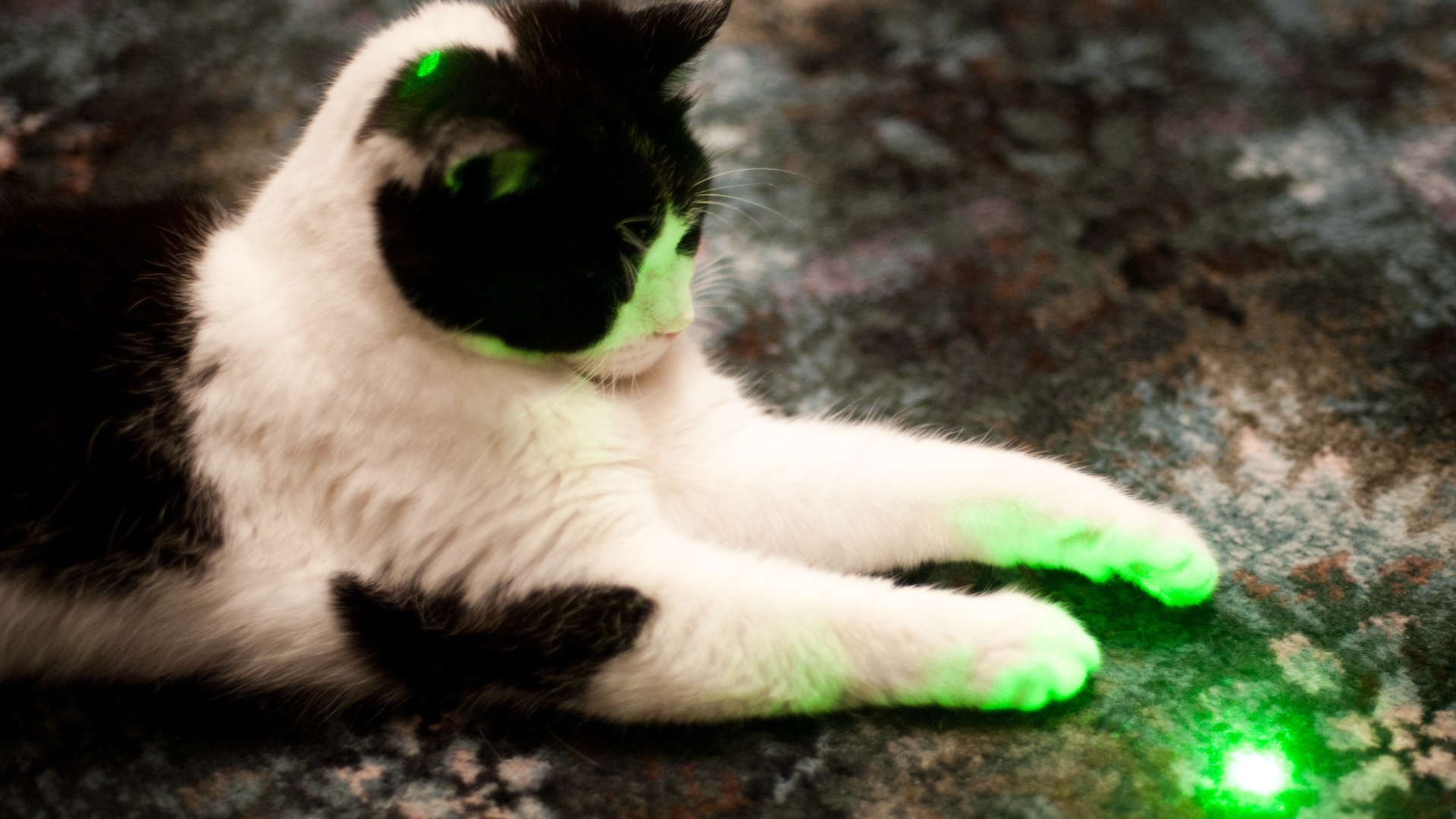
How to play with lasers safely
Whilst lasers can be lots of fun, Dr. Mikel Delgado (a cat behavior expert with Rover), doesn't recommend them. Since they don't activate all of the senses, they don't provide your cat with the full hunting and play experience - focusing solely on sight.
However, if you must, she suggests using it as a warm-up for cat play, switching over to a physical toy, and then ending the session with the best cat treats. This sequence allows them to use sight, touch, smell, taste and maybe even hearing too.
To give your cat the full satisfaction, Susan also recommends pairing laser play with a physical toy. She suggests throwing the toy while pointing the laser at it.
She says: "This approach helps balance the excitement of the chase with the satisfaction of a successful 'hunt', making the game more fulfilling. Most importantly, the cat can complete the predatory sequence in his brain – instead of being left high and dry with nowhere for all that adrenaline to go."
Playology Felt Fish Cat Toy with Catnip | Amazon
These catnip-infused fish will be hard for your cat to resist. They're great for keeping your kitty active and come with a bell to grab their attention.
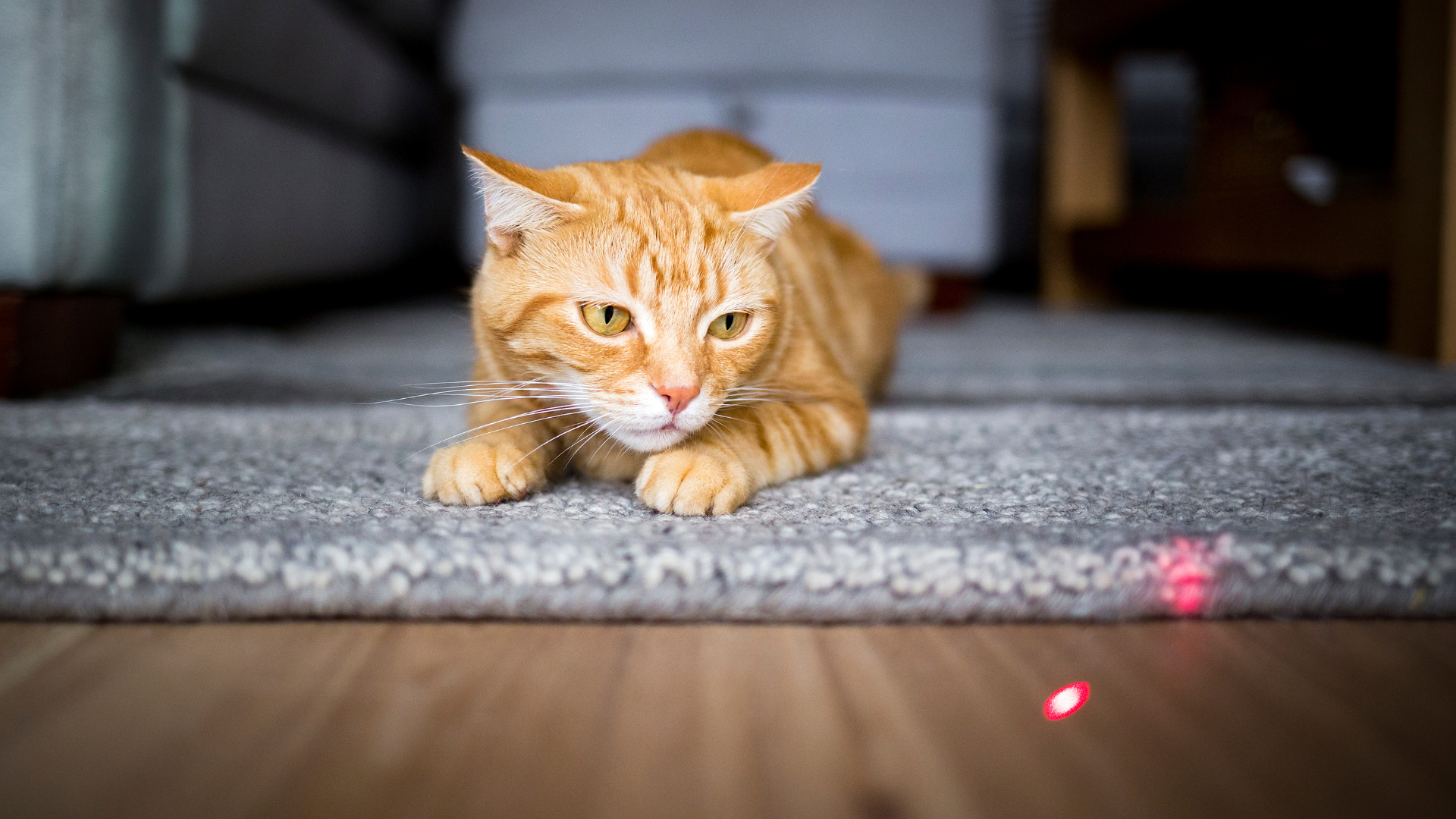
Do cats know lasers aren't real?
Did you know that cats can't see the color red? Dr. Mikel explains that lasers probably just look like a white or gray-ish bright spot, so they're actually just chasing the movement rather than the color. If you're interested in learning more about this, we have a feature answering, 'Do cats see color?'
She says: "Many cats behave as though the laser point is a bug or other prey item. This can be confusing to them when humans do not move the laser pointer like a physical object would move. For example, a physical object usually does not move completely randomly or suddenly disappear."
Whilst it can be tempting to move the laser quickly, Dr. Mikel recommends mimicking the slow pace of a bug instead. Once you're finished with the game, make the laser disappear under a door or behind an object, as opposed to switching it off immediately.
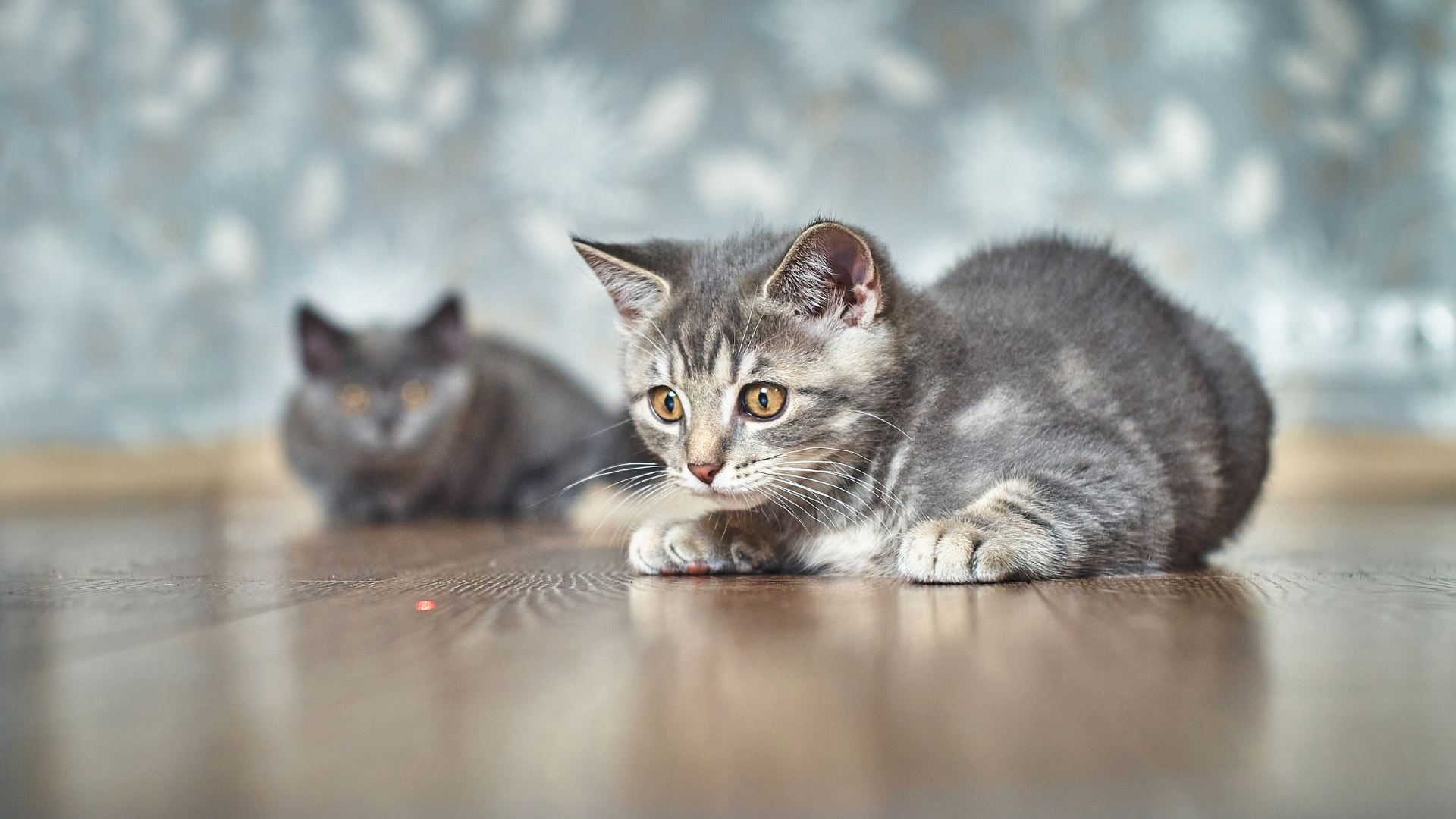
Alternatives toys to lasers
Here are some fun alternatives to laser toys:
- Teaser toys: These encourage your cat to jump, run and chase, while giving them the thrill of the catch.
- Automated balls: These roll around your home, motivating your cat to run around and catch their 'prey'. We love this one from Amazon, which featured in our guide on the best automatic cat toys.
- Catnip balls: Unlike lasers, these toys activate all of your cat's senses and give them something to catch as a reward. To find one your cat loves, check out our guide to the best catnip toys, which have been tested and approved by our team of experts.
You might also want to read: Why do cats play with their prey? and What do cats like to play with? Or, learn why cats play with their tails and why cats sit on their toys

Hannah graduated from the Royal Veterinary College in 2011 and began work straight away at a busy mixed practice. Initially, she treated all species, but focused on small animals from 2014. She has a passion for soft tissue surgery, ultrasound, and canine and feline dentistry, having completed additional training in these areas.

Susan Nilson is a cat and dog training and behavior specialist, with professional accreditation via CAPBT (COAPE Association of Pet Behaviorists and Trainers) and PPAB (Pet Professional Accreditation Board). She is a published pet behavior author and editor, and has been featured on Newsweek, Readers’ Digest, Homes & Gardens, Forbes, Rover.com, US News, Bustle to name a few.

Mikel is a Certified Applied Animal Behaviorist (Animal Behavior Society), a Certified Cat Behavior Consultant (International Association of Animal Behavior Consultants), and an Affiliate Member of the American Veterinary Society of Animal Behavior. She's also a postdoctoral fellow at the School of Veterinary Medicine at the University of California, Davis. She has worked professionally with cats for over twenty years, offering consultation for cat guardians and rescue organizations to prevent and solve behavior problems.

Megan is a Staff Writer at PetsRadar, covering features, reviews, deals, and buying guides. She has a wealth of experience caring for animals, having grown up with dogs, cats, horses, guinea pigs, and more throughout her life. She studied BA Journalism at the University of Westminster, where she specialized in lifestyle journalism and was editor of Smoke Radio’s lifestyle website. Megan works alongside qualified vets and accredited trainers to ensure you get the best advice possible. She is passionate about finding accurate and helpful answers to your pet-related questions.
- Dr. Mikel (Maria) Delgado PhDCat Behavior Expert with Rover
- Susan NilsonOwner and Founder of The Cat and Dog House
- Dr. Hannah Godfrey BVetMed MRCVSVet
